Two years after adopting a feline leukemia (FeLV)-positive cat an Army veteran decided that his family needed another four-legged member. Cautious about exposing another cat to FeLV, Michael decided to adopt a dog.
The young veteran started his search for a new canine companion and quickly found the perfect match, albeit a curious one: the longest-term resident at his local animal shelter who was more likely to growl at visitors than she was to greet them with a wagging tail. 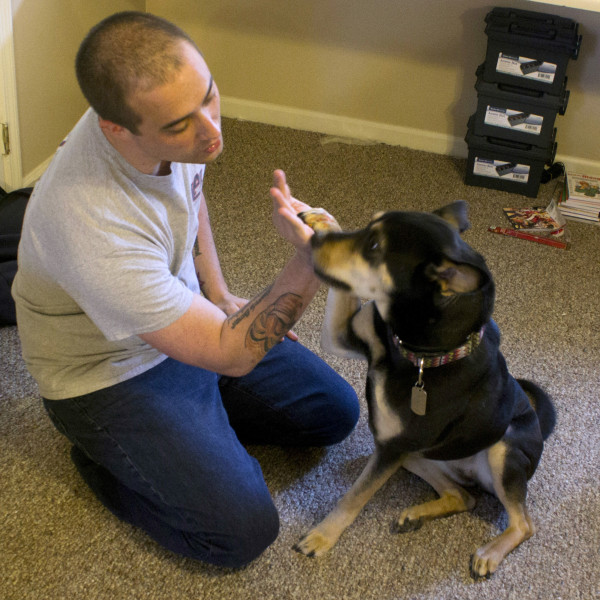
Learning dedication and respect
In 2008, Michael joined the Army. He was 21 years old and saw military service as a good start to his young adult life.
“It felt like an all-around good choice for me,” he says, “steady pay, good benefits, do something good while earning money to do something good.”
Michael left his native Alabama and completed basic training in Fort Jackson, South Carolina, before moving on to Fort Lewis, Washington – where he remained for the duration of his service as part of the 9th Financial Management Detachment. The unit plays a vital role in ensuring that essential functions are funded, including soldiers’ pay, disbursement to contractors and purchasing fuel for military vehicles.
“It was interesting,” Michael says of the training process. “I’d never walked so much in my life. It did a great job of getting me into shape.”
In Fort Lewis, Michael worked primarily in the Finance Department, but provided support elsewhere when needed. In the motor pool he focused on preventative maintenance of Army vehicles and, as a Unit Armorer, he maintained his unit’s weapons.
When Michael entered the military he expected a regular paycheck and solid set of benefits; what he did not anticipate was just how much his entire worldview would change.
“A couple of higher-ups really showed me how people should be treated right, regardless of rank or job. I didn’t expect it,” he says. “Definitely memorable, definitely changed how I approach people when I’m working in groups or teams, or when I’m in charge of getting certain things done.”
After three years of military service Michael received a medical discharge. He copes with fibromyalgia and recurring stress fractures in both shins, which together make it difficult to get a job that requires “a lot of standing, walking or moving.”
Michael has since devoted himself to higher education. He is currently pursuing a Master’s degree in Technical and Professional Communication at Auburn University – where he is a part-time teacher as well – after having earned his Bachelors degree in professional and public writing at a Seattle university.
If all goes as planned Michael hopes to eventually earn a Ph.D. in a writing-related area, which reflects his passion for the communications and “helping people understand things better – or presenting it in a way that is more accessible to them.”
But the real life lessons Michael learned during his years of military service are proving to be the most meaningful and durable; lessons he hopes to teach others.
“I haven’t seen that level of dedication to another person here, and I’ve been out for years now,” he shares, adding that it “definitely changed how I approach people when I’m working in groups or teams, or when I’m in charge of getting certain things done.”
Healing at both ends of the leash
Allegra was a nearly four year-old Kelpie mix who arrived at the Lee County Humane Society in Auburn, Alabama as a pregnant, previously abused stray. She had been living at the shelter for more than six months with no one the least bit interested to adopt her. Despite her cute looks, she had been overlooked by potential adopters time and time again due to her personality. 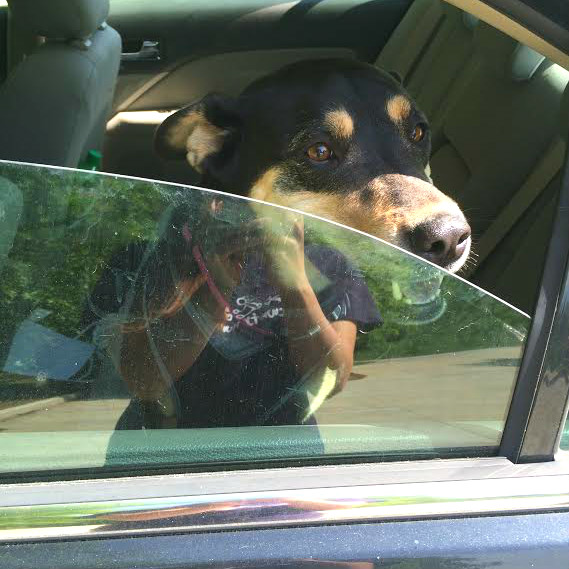
Michael had seen Allegra’s picture on the shelter’s website and wanted to meet the dog who no one else wanted.
“I called and made sure she was still around, and I went up for a visit,” he recalls. “And I think that’s kind of really all it took for me to decide that I wanted to see if I could work things out.”
Allegra was no kinder to the Army veteran than she was to most other visitors, but was met with understanding rather than rejection.
“She was a little shy. She growled a lot. And I think that was just her being scared.”
While there, Michael learned about the Lee County Humane Society’s new partnership with Pets for Patriots, intended to help the most overlooked dogs and cats – like Allegra – find hope and a home with military veterans. In exchange, we offer a range of benefits to reduce the overall costs of pet guardianship, including a ‘welcome home’ contribution towards pet food and other essentials, and discounted pet care through local veterinary partners.
“One of the biggest things that really helped me out – especially with Pets for Patriots – is that I really could not have gotten set up as well with Kara had it not been for everything they provided,” Michael says.
Although the shelter staff were hopeful that their longest-term resident might have found her match, they insisted upon a short-term foster with Michael to see if he and Allegra would be a good fit. If all went well, they would allow the Army veteran to finalize Allegra’s adoption.
“They let me bring her in for a trial adoption for about a week,” Michael says. “Because she had had an abusive owner previously who was a man, she wasn’t comfortable around men. We wanted to make sure she was still going to be fine and not have too many issues with me.”
What Michael may not have realized at the time was that both he and once-abused dog both needed to heal, and come to grips with the physical and emotional challenges each had been dealt.
New life and new name for “super” dog
Michael refused to give up on Allegra, thanks to his “stubborn, persistent” nature and the lessons he learned in the Army about dedication to others. He spent the foster period working with his new charge on some of her quirks, while giving her the time she needed to relax and come out of her shell. 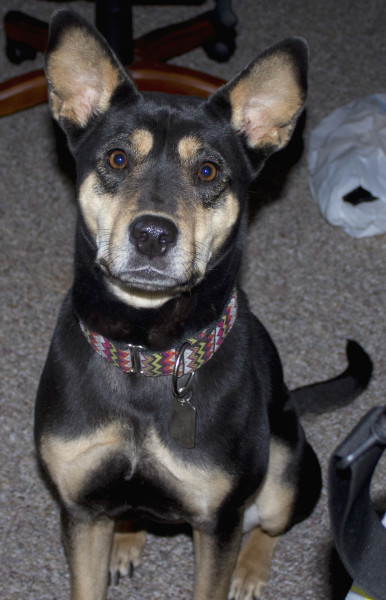
It didn’t take long for Michael to decide that this “adorable and sweet” pup would not be returning to the shelter.
“I feel like she was just misunderstood,” he shares, “and I hated for that to keep her from getting a good home, and I guess that’s just kind of all it was. I wanted her to have a good home where she didn’t have to worry about being taken back the next week because of her growling.”
The adoption was finalized and Allegra received a new name to mark the occasion: Kara.
“‘Allegra’ reminded me of the medicine,” Michael admits. “I know it’s a very common name elsewhere, but I couldn’t say it without thinking of the medicine. I like comic books, and Supergirl’s name is Kara.”
A stock-stealing homebody finally has a home
Kara’s transition into her new family with Michael and Cricket was relatively smooth.
“After about a week with her, she didn’t growl as much,” Michael says. “Now we don’t really have any issues at all. It took about a month before she got comfortable and it’s just been getting better. Never met a more well-behaved dog my entire life.”
Little is known about Kara’s life before she was found, pregnant and abused. Perhaps as a result of her largely joyless existence, Kara showed little interest in toys or other frivolities enjoyed by most other companion dogs.
“She’s a very docile animal,” Michael observes. “She doesn’t play very much. If we can call a dog a homebody, that’d be her. She really just likes being in the same room with me.“
It seems that there is at least one other things that Kara likes.
“She likes socks,” says the Army veteran. “I’ve lost many a sock because of her, but I can always go buy more socks.”
Kara seems to finally like her feline family member as well, even though she and Cricket seem to ignore each other for the most part. Michael insists that the pair is more closely bonded than they let on.
“I caught them one time sleeping on Kara’s bed together. I had to get up and take a picture, and then they woke up and parted ways,” Michael says, adding, “but I have the proof!”
In this kind, yet misunderstood dog, the Army veteran found just what he needed: a companion to make every day life a little easier, a little sweeter, a little more worth living.
“She’s a really great companion animal, honestly,” Michael shares. “There are times when I guess it’s just nice to have her around. Especially long days, rough days. It’s really nice to just come home, and she’s there, and we watch Netflix on the bed. Stuff like that. She’s quiet, she’s peaceful.”
“All the girls cried”
Kara was the first adoption made through the Lee County Humane Society’s partnership with Pets for Patriots, and it proved to be a very memorable one. The shelter director shared how thrilled everyone was when Kara found her person.
“Our first Pets for Patriots adoption and she was our longest term pet,” says TJ McCullough. “All the girls cried. She has been a hard adoption because it takes her a bit to warm up to her. I had been here over a month and she still growled at me.”
The shelter was eager to help their most difficult charge transition to her new home and waived the adoption fee for Michael.
“It was a very smooth process,” Michael says of the experience. “They really wanted this to work out. They provided me with a lot of resources.”
A local rescue group offered free grooming and free obedience training as well. Michael says that these perks, coupled with the benefits that Pets for Patriots provides, eliminated nearly all of the initial financial costs typically associated with adopting a new pet. Beyond the financial support, however, Michael believes that veterans who are having trouble transitioning to civilian life might benefit from a companion pet.
“When I got [to Auburn], there weren’t that many people that I could connect with,” he explains. “They do provide a veterans resource center where other veterans will try to connect and have that support group. I was never really comfortable with that. I don’t know them too well, and it’s not through any fault of their own.”
Yet the Army veteran experienced first hand how a companion animal can bridge the gap between military life and the daily routines of the civilian world. It is just one of many ways that companion dogs and cats help military veterans.
“But with Kara you can kind of go at your own pace. I think that’s a really important thing, if you’re just transitioning out. It can feel lonely at times, and having something or somebody there that can help you get through that is really important,” he says, adding, “My mood has really evened out. It’s nice coming home to a pet who is just happy to see you. She’s a sweetheart.”




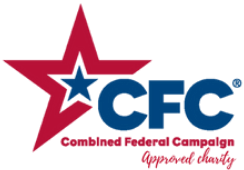





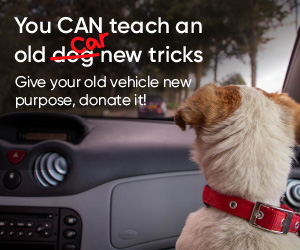
0 Comments